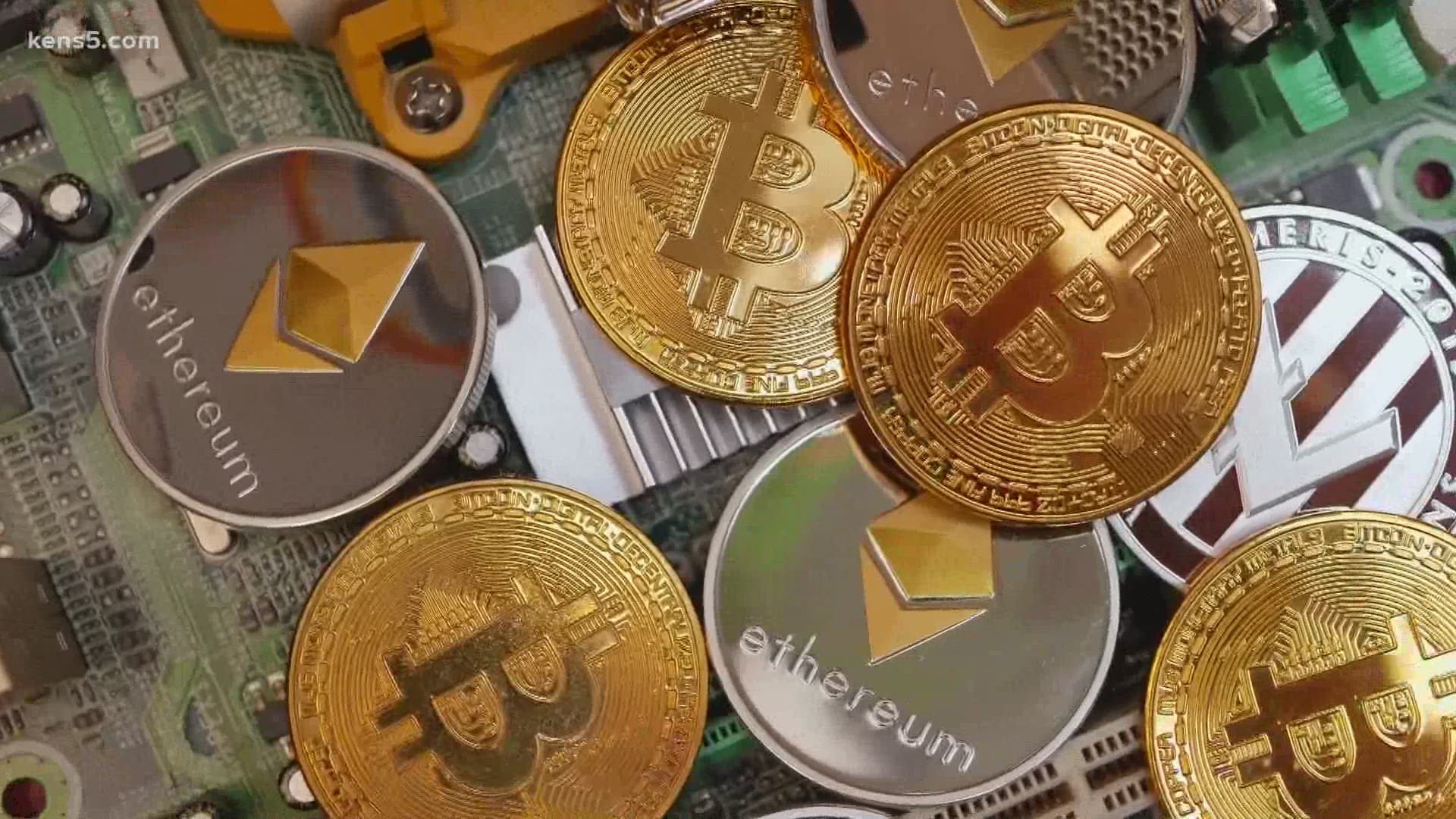SAN ANTONIO — Exchanges make it easy to buy, sell or trade cryptocurrencies. A recent study found that the simple process is one of the reasons why more young people began investing during the pandemic.
If you’re on the fence about crypto, here are some things to think over.
According to Go Banking Rates, a personal finance website, nearly 72% of people surveyed in the 18 to 24 age group who are invested in the stock market right now, reported that they started investing in stocks and/or cryptocurrency within the last six months. A data researcher for the company says the increase is attributed to investing apps and. social media platforms. Plus, the rise of meme stocks that were driven by young investors also added to cryptocurrency’s popularity.
But if you’re new to the crypto world, should you jump on the bandwagon?
Why invest in cryptocurrency?
There are various reasons why people invest in cryptocurrency. There are people who want to buy the digital asset to diversify their portfolio, while others have become crypto enthusiasts simply because of the blockchain technology behind it.
Another common reason is that people view this digital asset as a long-term store of value, (while some people make frequent trades to try to make a quick buck due to the volatile nature of cryptocurrencies).
“People that stated cryptocurrencies, the whole reason behind it was decentralized, get away from the banking system. They don’t trust the banking system. There are those group of people. But I believe the vast majority of people buying it in 2021 are buying it to make a profit,” said Karl Eggerss, senior wealth advisor and partner of Covenant.
How do you protect cryptocurrency?
The responsibility of protecting cryptocurrencies falls on the buyer. Just like storing paper cash, you can store cryptocurrency in wallets that are online or offline. For example, exchanges where you made a purchase can hold your coins for you. It’s considered a “hot wallet, and there are risks of security breaches. You can also store your crypto offline, in what’s called a “cold wallet” or “cold storage.”
“Cold storage is where you’re taking it off and nobody can get to it. The risk is that you could lose it. You could lose that thumb drive, forget the password and that has happened to a lot of people where they literally can’t find it,” explained Eggerss. “That’s really no different than losing a stock certificate or losing a bar of gold.”
Will I owe taxes on my cryptocurrency?
The Internal Revenue Service treats virtual currencies as property for federal income tax purposes. The agency has a page that answers frequently asked questions.
“The IRS is going to crackdown and they’re going to want to see who is trading it, how often, what their gains are,” said Eggerss. “We’re kind of in the Wild West in the cryptocurrency world. There’s not great reporting. I think there are a lot of people trading it that don’t realize that they should be paying taxes on it.”

